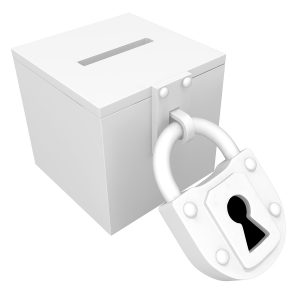04/28/2024 - SANS Baltimore Spring 2024
04/29/2024 - FedRAMP and AI Compliance Symposium
04/29/2024 - Sea-Air-Space 2024 Webinar Series: Fo...
04/30/2024 - The GAO Green Book Compliance Academy
04/30/2024 - UEM Innovation Update: How BlackBerry...
04/30/2024 - Building Responsible AI Workflows wit...
04/30/2024 - Unveiling the Cyber Pandora's Box
04/30/2024 - Accelerate Application Deployment wit...
04/30/2024 - Automate, Analyze, Act: Streamlining...
04/30/2024 - Forescout Webinar: Building Cyber Res...
04/30/2024 - Seizing the Right Evidence, Anywhere
04/30/2024 - FREE training on Reporting Excess Per...
05/01/2024 - SecureWorld Healthcare
05/01/2024 - Migrate, Optimize, and Modernize with...
05/01/2024 - Exploring Five Emerging Cybersecurity...
05/01/2024 - Using the Tools at Hand to Get to Zer...
05/01/2024 - Alliant 2 DPA Training
05/01/2024 - Automated & Continuous Security Compl...
05/01/2024 - Roadmap to DoDD 8140.03M Compliance:...
05/01/2024 - 2024 Performance Counts Summit
05/01/2024 - F5 Ft. Meade Lab Day
05/01/2024 - Atlassian User Academy: Jira Service...
05/02/2024 - Minneapolis Cybersecurity Conference
05/02/2024 - AI for Government Summit: Taking the...
05/02/2024 - AO Perspectives: Managing Risks and S...
05/02/2024 - Splunk Workshop Series
05/02/2024 - Quantum Readiness: Effective Strategi...
05/02/2024 - Connecting the Unexpected: Scalable D...
05/02/2024 - Advanced Threat Protection for Govern...
05/02/2024 - Taming the Data Dragon: Exploring the...
05/02/2024 - Splunk Enterprise Security Virtual Workshop
05/02/2024 - Reduce Risk, Enhance Response: Ransom...
05/02/2024 - The Future of Work for Government Agencies
05/06/2024 - RSA Conference 2024
05/06/2024 - CCSP | Official ISC2 Training Week
05/07/2024 - 47th Annual Rural Health Conference
05/07/2024 - BD Masterclass
05/07/2024 - Cyber Summit 2024
05/07/2024 - H2O.ai's GenAI Bootcamp for Government
05/07/2024 - SOF Week 2024 Executive Briefings Ser...
05/07/2024 - FY24 National Firearms Program
05/07/2024 - SOF Week 2024 Executive Briefings Ser...
05/07/2024 - FY24 (Virtual) PPMS Familiarization Trng
05/08/2024 - ISACA 2024 North America Conference
05/08/2024 - ISACA 2024 CMMI Conference
05/08/2024 - End User Computing, Empowering the Wa...
05/08/2024 - The Intent to Compromise: Bypassing F...
05/08/2024 - Enterprise Education Series: Pillars...
05/08/2024 - Bringing Digital Transformation to Fe...
05/08/2024 - Governing Your AI Use Case With Collibra
05/08/2024 - GitLab SOF Week 2024 Executive Briefing
05/08/2024 - Securing Tomorrow: The Role of CTFs i...
05/09/2024 - SANS Security West San Diego 2024
05/09/2024 - Leveraging Data to Achieve Mission
05/09/2024 - Election Security: Protecting the Fou...
05/09/2024 - Splunk Workshop Series
05/09/2024 - Defend, Protect, Educate: Revolutioni...
05/09/2024 - VMware's Data Portfolio Overview for...
05/09/2024 - SOF Week 2024 Executive Briefings Ser...
05/09/2024 - Securing the Identity Fabric in the A...
05/09/2024 - SOF Week 2024 Executive Briefing - UiPath
05/10/2024 - Vision 2024: Getting in a New York (I...
05/13/2024 - Threat Intel and Awareness Summit
05/13/2024 - Dynatrace Cloud Innovation Day for Fe...
05/13/2024 - Certificate of Cloud Security Knowled...
05/13/2024 - CISSP | Official ISC2 Training Week
05/14/2024 - Join Us to Learn How to Elevate Your...
05/14/2024 - FAST24: Emerging Innovations and Trends
05/14/2024 - Introduction to Tableau Prep
05/14/2024 - Cost Saving Measures for Federal Agen...
05/14/2024 - Leveraging Splunk Cloud at NASA
05/14/2024 - SOF Week 2024 Fortifying the Digital...
05/14/2024 - Unlock the Power of Splunk ES and RBA...
05/15/2024 - AFFIRM Up Lift: Strengthening Cyberse...
05/15/2024 - Alliant 2 DPA Training
05/15/2024 - Hyland Federal: Alfresco Content ...
05/15/2024 - From Risk to Resilience: Leveraging E...
05/15/2024 - Focus on Cyber Resiliency in a Hostil...
05/16/2024 - Splunk Workshop Series
05/16/2024 - Unknown Assets are the Achilles Heel...
05/16/2024 - Navigating CMMC Compliance: The Integ...
05/16/2024 - Automate Your Zero Trust Workflow
05/16/2024 - Definitive Timeline: Federal Guidance...
05/16/2024 - Harnessing Tableau for Enhanced Veter...
05/17/2024 - Austin Cyber Security Summit
05/20/2024 - SANS Leadership & Cloud Security - Cr...
05/21/2024 - Denver Cyber Security Summit
05/21/2024 - Qualys Public Sector Cyber Risk Conference
05/21/2024 - Google Workspace California Webinar Series
05/21/2024 - From Data to Decisions in Tableau Pul...
05/21/2024 - AWS Kentucky Lunch and Learn: Empower...
05/21/2024 - Red Hat Training Webinar Series
05/21/2024 - Microsoft Office Offensive Tradecraft
05/21/2024 - VETS 2 DPA Training
05/21/2024 - Migrate, Optimize, and Modernize with...
05/21/2024 - Modernizing Security: Simplifying Zer...
05/22/2024 - Tampa Cybersecurity Conference
05/22/2024 - Defense Talks
05/22/2024 - SecureWorld Atlanta
05/22/2024 - INTERFACE Honolulu 2024
05/22/2024 - Key Insights From the 2024 Cyberthrea...
05/22/2024 - Workday Federal Forum
05/22/2024 - Leveraging Splunk Cloud at DOE
05/22/2024 - Charting Paths Forward: A Recap of Ta...
05/23/2024 - Meeting Small Business Goals and Acce...
05/23/2024 - Improving Public Sector CX
05/23/2024 - Delivering Decision Advantage
05/23/2024 - Tungsten Automation and Optima Webinar
05/23/2024 - Maximizing IT Services for Government...
05/29/2024 - SANS Stay Sharp: May 2024
05/30/2024 - SecureWorld Miami
05/30/2024 - ATARC's Federal Quantum Summit
05/30/2024 - Zero Trust Training | CCZT
06/03/2024 - SANS Miami 2024
06/04/2024 - Techno Security & Digital Forensics C...
06/05/2024 - ElevateIT-Dallas Technology Summit
06/05/2024 - FedTalks 2024
06/05/2024 - AM AFFIRMation: Leveraging Cyber, Dat...
06/06/2024 - Kansas City Cybersecurity Conference
06/06/2024 - Salt Lake City Cyber Security Summit
06/06/2024 - SecureWorld Chicago
06/06/2024 - Hybrid Cloud Best Practices
06/06/2024 - Health Innovation Summit 2024
06/06/2024 - INTERFACE Kansas City 2024
06/06/2024 - Government Customer Experience ...
06/06/2024 - Babel Street GEOINT Webinar
06/07/2024 - Implementing AI Provides Short ...
06/10/2024 - CISSP | Official ISC2 Training Week
06/10/2024 - Certificate of Cloud Security Knowled...
06/11/2024 - The GAO Green Book Compliance Academy
06/12/2024 - Tableau Server to Cloud: Lift ...
06/12/2024 - Alliant 2 DPA Training
06/13/2024 - FAR/DFARS Mid-Year Update 2024
06/13/2024 - ATARC's Federal Open Source Summit
06/13/2024 - Cloud Governance, Risk and Compliance...
06/17/2024 - SANS Rocky Mountain Summer 2024
06/18/2024 - Defense One Tech Summit
06/18/2024 - Carahsoft DevSecOps Conference
06/20/2024 - AI & ML in Records Management
06/21/2024 - INTERFACE Phoenix 2024
06/23/2024 - ISTE Live 2024
06/24/2024 - CCSP | Official ISC2 Training Week
06/25/2024 - Hartford Cyber Security Summit
06/25/2024 - DCAA & DCMA Cost, Pricing, Compliance...
06/25/2024 - Google Workspace California Webinar Series
06/26/2024 - Federal Low-Code App Engine Innovatio...
06/27/2024 - Orange County Cybersecurity Conference
06/27/2024 - Maximum ACFR Automation for States, L...
07/11/2024 - Pittsburgh Cybersecurity Conference
07/11/2024 - INTERFACE Salt Lake City 2024
07/11/2024 - Zero Trust Training | CCZT
07/14/2024 - AGA's 2024 Professional Development T...
07/15/2024 - SANSFIRE Washington, DC 2024
07/15/2024 - FLGISA 2024 Annual Conference
07/16/2024 - AI for Government: Opportunities ...
07/18/2024 - Phoenix Cybersecurity Conference
07/18/2024 - Election Security: Protecting the Fou...
07/19/2024 - ElevateIT-Minneapolis Technology Summit
07/19/2024 - ElevateIT-HoustonTechnology Summit
07/22/2024 - CCSP | Official ISC2 Training Week
07/22/2024 - CISSP | Official ISC2 Training Week
07/23/2024 - Google Workspace California Webinar Series
07/25/2024 - Denver Cybersecurity Conference
07/29/2024 - Certificate of Cloud Security Knowled...
07/30/2024 - The GAO Green Book Compliance Academy
07/31/2024 - INTERFACE Montana 2024
08/01/2024 - Cloud Governance, Risk and Compliance...
08/03/2024 - Black Hat USA 2024
08/05/2024 - SANS Nashville 2024
08/12/2024 - SANS Chicago 2024
08/12/2024 - CCSP | Official ISC2 Training Week
08/12/2024 - CISSP | Official ISC2 Training Week
08/13/2024 - 2024 Government Financial Management...
08/15/2024 - Salt Lake City Cybersecurity Conference
08/19/2024 - CMMC Level 1 Implementation
08/19/2024 - SANS Virginia Beach 2024
08/22/2024 - Washington D.C. Cybersecurity Conference
08/22/2024 - INTERFACE Boise 2024
08/26/2024 - Zero Trust Architecture (NIST SP 800-207)
08/26/2024 - Certificate of Cloud Security Knowled...
09/03/2024 - Protecting Controlled Unclassified In...
09/04/2024 - SANS Network Security Las Vegas 2024
09/05/2024 - Charlotte Cybersecurity Conference
09/09/2024 - Overview of the CMMC Compliance Model
09/09/2024 - CCSP | Official ISC2 Training Week
09/10/2024 - The GAO Green Book Compliance Academy
09/16/2024 - Techno Security & Digital Forensics C...
09/17/2024 - Using the Yellow Book for the Governm...
09/17/2024 - Systems Security Plan - ( NIST Based SSP)
09/17/2024 - Overview of the NIST Cybersecurity Fr...
09/19/2024 - ITModTalks
09/19/2024 - Des Moines Cybersecurity Conference
09/19/2024 - INTERFACE Albuquerque 2024
09/19/2024 - AGA's 2024 Internal Control &Fraud Pr...
09/23/2024 - Implementing the HIPPA Security Rule...
09/23/2024 - Risk Management Overview (ISO 31000)
09/23/2024 - CISSP | Official ISC2 Training Week
09/23/2024 - Certificate of Cloud Security Knowled...
09/25/2024 - Impact of AI on the Cybersecurity Ind...
09/26/2024 - Zero Trust Training | CCZT
09/30/2024 - Managing Information Security (ISO 27001)
09/30/2024 - CMMC Level 1 Implementation
09/30/2024 - Ransomware Risk Management (NIST 8374)
10/03/2024 - Columbus Cybersecurity Conference
10/07/2024 - Zero Trust Architecture (NIST SP 800-207)
10/07/2024 - CMMC Level 2 Implementation
10/11/2024 - Using Generative AI to Transform the...
10/15/2024 - Protecting Controlled Unclassified In...
10/16/2024 - INTERFACE Spokane 2024
10/17/2024 - Boston Cybersecurity Conference
10/21/2024 - Overview of the CMMC Compliance Model
10/21/2024 - International Telemetering Conference (ITC)
10/21/2024 - NJSBA Workshop '24
10/22/2024 - The GAO Green Book Compliance Academy
10/28/2024 - Certificate of Cloud Security Knowled...
10/29/2024 - Using the Yellow Book for the Governm...
10/29/2024 - Systems Security Plan - ( NIST Based SSP)
10/29/2024 - Overview of the NIST Cybersecurity Fr...
10/30/2024 - Phoenix Cybersecurity Conference
10/30/2024 - CyberTalks 2024
11/04/2024 - Implementing the HIPPA Security Rule...
11/04/2024 - Risk Management Overview (ISO 31000)
11/07/2024 - INTERFACE Omaha 2024
11/12/2024 - Managing Information Security (ISO 27001)
11/12/2024 - CMMC Level 1 Implementation
11/12/2024 - Ransomware Risk Management (NIST 8374)
11/14/2024 - Nashville Cybersecurity Conference
11/14/2024 - Zero Trust Training | CCZT
11/19/2024 - Zero Trust Architecture (NIST SP 800-207)
11/19/2024 - CMMC Level 2 Implementation
11/20/2024 - Internal Auditing for the Defense Con...
11/20/2024 - Federal Low-Code App Engine Innovatio...
11/21/2024 - San Diego Cybersecurity Conference
12/02/2024 - CMMC Level 3 Implementation
12/02/2024 - Protecting Controlled Unclassified In...
12/04/2024 - Houston Cybersecurity Conference
12/04/2024 - Top Five Cybersecurity Predictions for 2025
12/05/2024 - Cloud Governance, Risk and Compliance...
12/05/2024 - Zero Trust Training | CCZT
12/09/2024 - Overview of the CMMC Compliance Model
12/10/2024 - The GAO Green Book Compliance Academy
12/11/2024 - Atlanta Cybersecurity Conference
12/11/2024 - Federal Low-Code App Engine Innovatio...
12/12/2024 - FAR/DFARS End of Year Review 2024
12/12/2024 - INTERFACE Seattle 2024
12/15/2024 - Security and Privacy Controls (NIST S...
12/17/2024 - Using the Yellow Book for the Governm...
12/17/2024 - Systems Security Plan - ( NIST Based SSP)
12/17/2024 - Overview of the NIST Cybersecurity Fr...
12/23/2024 - Implementing the HIPPA Security Rule...
12/23/2024 - Risk Management Overview (ISO 31000)
12/30/2024 - Managing Information Security (ISO 27001)
12/30/2024 - CMMC Level 1 Implementation
12/30/2024 - Ransomware Risk Management (NIST 8374)
 With a number of high-profile security hacks involving widely used software, government agencies are retraining their focus on their organization's security measures and those of the vendors and service providers that work with them. This shift in focus was actually on the rise before the recent hacks in anticipation of cyberattacks just like the ones we've recently seen.
With a number of high-profile security hacks involving widely used software, government agencies are retraining their focus on their organization's security measures and those of the vendors and service providers that work with them. This shift in focus was actually on the rise before the recent hacks in anticipation of cyberattacks just like the ones we've recently seen.


 Going into its (lucky)
Going into its (lucky) 

